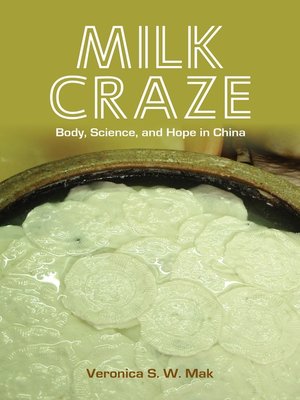Milk Craze
ebook ∣ Body, Science, and Hope in China · Food in Asia and the Pacific
By Veronica S. W. Mak

Sign up to save your library
With an OverDrive account, you can save your favorite libraries for at-a-glance information about availability. Find out more about OverDrive accounts.
Find this title in Libby, the library reading app by OverDrive.



Search for a digital library with this title
Title found at these libraries:
| Loading... |
Why do the Chinese, who are mostly lactase non-persistent, suddenly thirst for milk today? Whether it is formula milk, fresh cow milk, or tea with condensed milk, the rocketing milk consumption and production in China are of increasing global food safety, health, and environmental concerns. Milk Craze examines and compares developments in China's dairy industry and dietary dairy consumption, cross-nationally and globally, and more specifically in two localities: Shunde and Hong Kong.
Through an innovative analysis of medical texts and social media, as well as careful ethnographic studies, Veronica Mak ponders why the surge in demand for Western cow milk coincides with the plunge in sales of indigenous water-buffalo milk and cheese. She reveals the multiple ways in which global industries and Chinese dairy conglomerates sabotage and destroy local dairy farms. She shows that the rise of milk consumption is not just about the globalization of cow milk production and Westernization of the Chinese diet, but also due to the crossovers between the traditional Chinese diet and medicine and modern global diets. She uses these reference points to explore the multiple meanings of dairy foods in China, such as the class and cultural attributes associated with British "milk tea" and flavored yogurt products, water buffalo curds and cheese, and the lower class associations of labor in the water-buffalo dairying industries, and then discusses these developments in China through colonial and modern global perspectives. Milk Craze argues powerfully that the Westernization or dramatic change of diet in China too often obscures structural, educational, occupational, and social stresses and constraints, while naturalizing the dubious redefinition of health, cognitive performance, and ideal body shape as individual responsibility and imperative.






